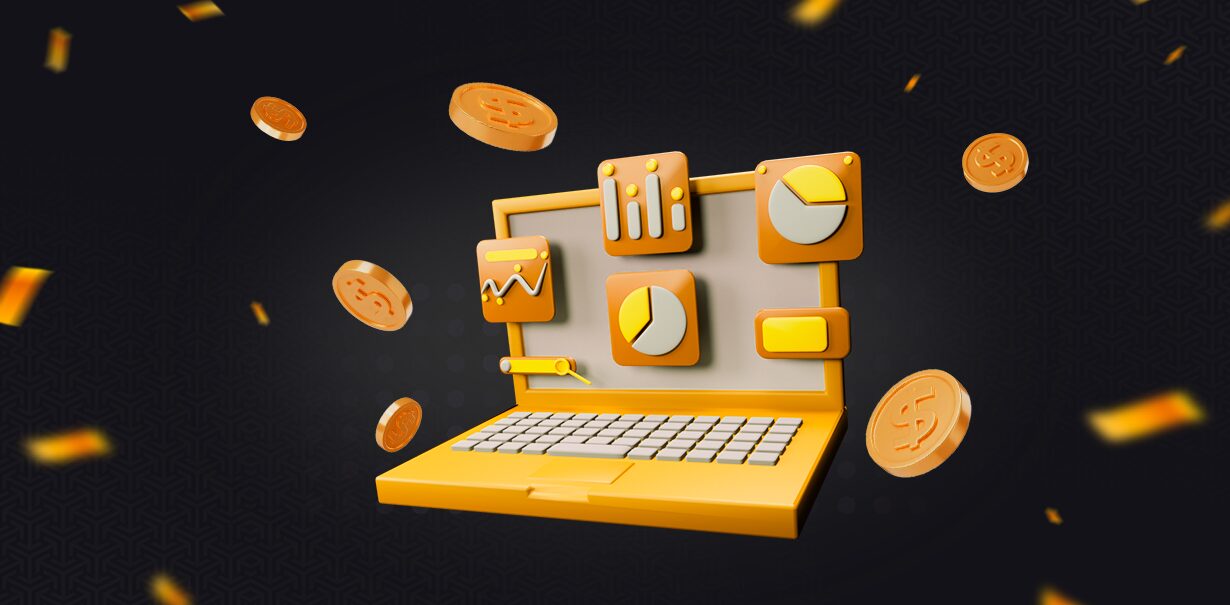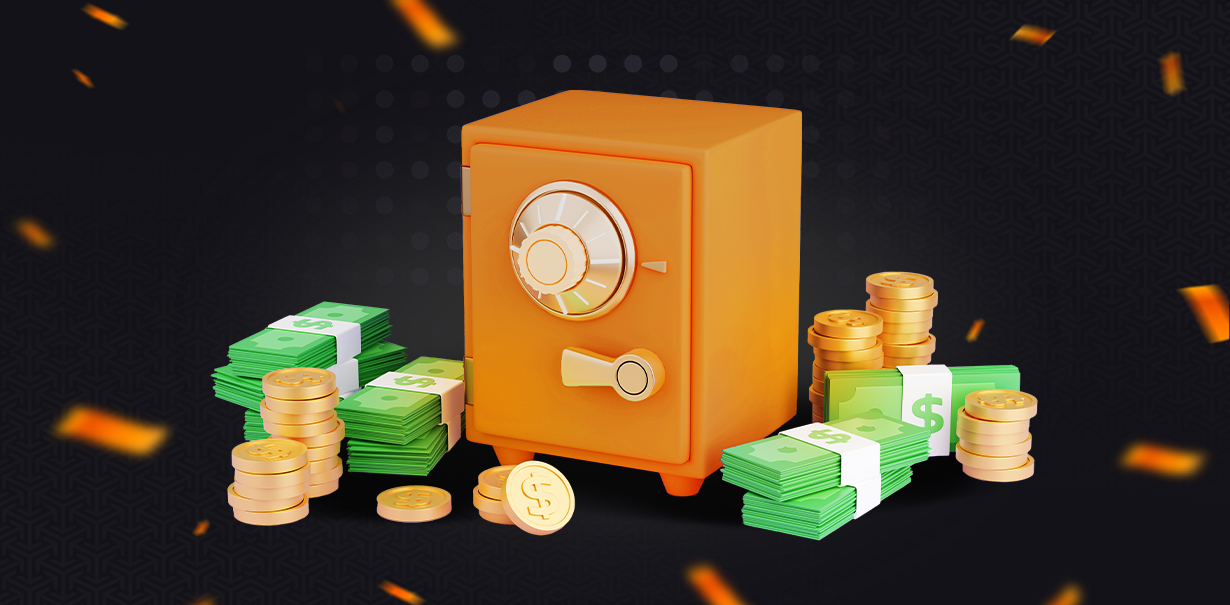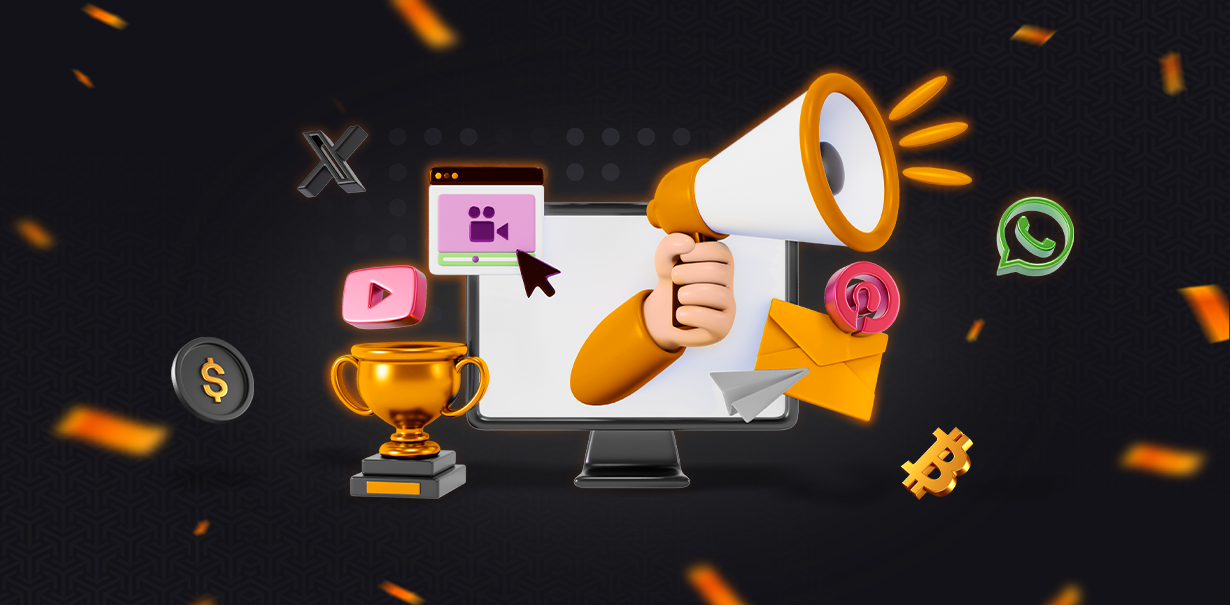High-Ticket Affiliate Marketing Niches

High-ticket affiliate marketing is a format of affiliate marketing where commissions for sales reach hundreds or even thousands of dollars. Unlike the traditional approach, where affiliates earn from each small transaction, the emphasis here is on a smaller number of customers but higher quality transactions. This direction attracts those who want to work with deeper analytics, product understanding, and long-term strategy.
Why are high-ticket models becoming more and more popular? First, they allow you to achieve financial goals much faster – instead of hundreds of microsales, a few targeted deals per month are enough. Secondly, high-quality products usually have better support, stable programs, and lower chargeback rates. This creates a more predictable ecosystem for partners.
However, the cost of entry into this segment is also higher. It requires different approaches to traffic, content, and even how trust is built. Users who are willing to spend $5000+ on an educational program or an automation tool do not respond to banal ads. They care about expertise, reputation, and convincing arguments. That is why in such niches it is important to know not only the promotion technique but also the logic of the product itself.
How high ticket affiliate marketing works: what you should know before starting
High ticket affiliate marketing is a strategy for promoting high-value affiliate products for which you receive large commissions. It can be complex software, educational courses, coaching, investment solutions, or premium products. This approach differs from classic affiliate marketing and requires special tactics.
The main feature is that sales require trust. If a person has to spend $500 or even $5000, he or she will not do it after a banal banner or an accidental click. Therefore, the whole strategy is based on creating a long-term contact with a potential client.
What does a typical high-ticket affiliate funnel include:
- Content preparation: You create educational articles, videos, or webinars that introduce the user to the topic and gradually lead to the product.
- Lead collection: Through a landing page or a subscription form, you get contacts of potential customers, with whom you later work through email newsletters or personalized offers.
- Building trust: Case studies, testimonials, free demos, or consultations work here. A person should feel that the decision is the right one.
- Conversion: When trust is built, the customer is ready to buy – this is where you get your high commission.
Compared to small affiliate sales, it is not the quantity but the quality of traffic that matters. One targeted customer can bring $1000+, while in classic programs, hundreds or thousands of clicks are required to generate similar income.
Other factors also play an important role:
- Process automation through CRM or email services.
- A/B tests of landing pages and advertisements.
- Accurate tracking to know where the best leads come from.
It is no longer just a hobby but a full-fledged business. That is why high-ticket affiliate marketing is a great option for those who are ready to invest in analytics, high-quality content, and long-term promotion strategies.
What is high ticket affiliate marketing and how it differs from the classic one
High-ticket affiliate marketing is a direction in affiliate marketing where products or services with a high price are promoted. The commission from each sale in such programs can range from several hundred to several thousand dollars. Unlike classic affiliate programs, where profits are based on a large number of cheap conversions, the high ticket model is focused on a smaller number of high-value transactions.
The key difference is the approach to sales. People don’t buy expensive things for no reason. They want to understand the value, make sure of the quality, and hear feedback. That is why banal traffic or mass advertising does not work here – preparation, warmed-up lead, and strategic presentation are important.
The main features of the high ticket affiliate model:
- High price of the product: It can be a $2000 course, a SaaS service with an annual fee, or a premium consultation.
- High commission: Often from $300 to $2000+ per transaction.
- Longer sales cycle: The client needs more time to make a decision, so a nurture marketing system is important: letters, remarketing, webinars.
- The need for a personalized approach: Automation works, but at key points – calls, answers to questions, support – you need to be “manual”.
- Value proposition: You need to be able to clearly explain why the product really costs so much.
In practice, this looks like selling through a complex funnel: it can take several weeks from the first meeting to the purchase. But the result is worth it. For example, in the niche of business consulting or investment courses, one transaction can bring more than 100 sales of a mass product with a CPA of $10.
This model is also closely related to personal brand or expertise. If the audience trusts you, it is much easier to promote expensive products. That is why high ticket affiliate marketing is often combined with content strategy, email marketing, YouTube, or podcasts.
For those who are ready to invest time and resources in high-quality communication and in-depth analytics, this strategy can become one of the most profitable solutions in the field of affiliate marketing.
High ticket affiliate marketing for beginners: where to start
The world of high ticket affiliate marketing may seem complicated for beginners, but the right preparation and strategy will help you avoid common mistakes. Unlike conventional affiliate marketing, you cannot just pour traffic and expect quick results – you need a systematic approach and an understanding of customer psychology.
First of all, you should understand that success in this area does not depend on luck. It is built on trust, content, and proper product presentation. Beginners should focus on choosing a niche, creating their own platform (for example, a website or YouTube channel), and learning the basics of digital marketing.
Here is a basic plan for newcomers to high ticket affiliate marketing:
- Choose a niche that is familiar or interesting to you. It is important that you understand what it is about. It can be business, finance, education, health, SaaS products, etc.
- Find proven affiliate programs. Start with platforms such as PartnerStack, Impact, ClickFunnels, Kajabi, where there are products with high commissions.
- Create an authoritative platform. It can be a blog, an Instagram page, a TikTok page, or a YouTube channel. The main thing is to publish high-quality content that solves the problems of your target audience.
- Use email marketing. Collect a subscriber base, launch autofunnels, and warm up leads. This is critical for selling expensive products.
- Run targeted ads. With Facebook Ads or Google Ads, it is important to test audiences, offers, and creatives. Be sure to set up tracking through UTM tags or special services like Voluum or RedTrack.
- Analyze and improve. Test new approaches, optimize content, and update landing pages. The high ticket model means constant work on details.
Mentoring is very important for beginners in this field. If you find courses or experts who already have experience in high ticket affiliate sales, do not spare time and resources to learn from them.
High ticket affiliate marketing is not a get rich quick scheme. However, it is a stable, highly profitable strategy that can become the basis of a long-term business if you use the right approach.
Overview of popular high ticket affiliate marketing programs: how to choose and avoid mistakes
In the field of high ticket affiliate marketing, choosing the right affiliate program is crucial. It is not only the high commission that matters, but also the stability of payments, partner support, product quality, and transparent terms of cooperation. Some programs offer $500, $1000, or even more per sale, but such figures should be backed by a reliable system.
Typical categories of high ticket affiliate programs include:
- Software (SaaS) – business platforms, CRM, email marketing, automation. Example: ClickFunnels, Kajabi, Semrush, GetResponse MAX.
- Educational products – online courses, mentoring programs, training in IT, marketing, or finance. Here, commissions often reach 30-50% of the course cost.
- Financial services – trading, crypto exchanges, banking platforms. They often have recurring or one-time payments of $1000+.
- Hosting and web services – although the commissions are not always “big”, you can earn $200-500 on premium tariffs (for example, from WP Engine or Kinsta).
- Luxury goods and services – travel, premium goods, high-end equipment, or business services. This is a niche with a specific audience but high revenue.
What to look for when choosing a program:
- Product reputation: If the product has negative reviews, sales will be weak, regardless of marketing.
- Payment model: It can be one-time payments, revshare, or monthly commissions. Choose the model that best suits your strategy.
- Cookie duration: The longer the validity period of the affiliate link = the higher the chance to get a commission.
- Availability of tracking and analytics: Programs that allow you to track traffic performance make scaling much easier.
- Partner support: The availability of promotional materials, webinars, and managers is a significant advantage.
Example: Thinkific (a course platform) offers a 30% lifetime recurring commission. If a client subscribes to the $199/month tariff, the partner receives ~$60 per month without additional efforts.
In the context of betting, it is worth noting that some iGaming brands also have high ticket offers. For example, premium betting platforms or VIP programs for high rollers can bring affiliates much higher commissions with fewer conversions. Here it is important to use high-quality landing pages and select traffic sources, for example, through email marketing or private channels (forum, closed Telegram communities).
What attracts high-ticket affiliate marketing niches: choosing topics with high potential
In the world of high-ticket affiliate marketing, choosing the right niche is half the battle. Here are some examples of niches that have already proven themselves in the high ticket affiliate model:
- Business solutions and automation: Sales tools, CRM systems, webinar or process automation platforms are all highly valued, and businesses are willing to pay for efficiency. For example, HubSpot, ActiveCampaign, or ClickFunnels bring $300-$1000 per lead.
- Investments, trading, cryptocurrencies: Financial products with payment per lead or deposit. Brokers, exchanges, analytics services, trading bots. Commissions here often reach $500+, especially for a verified client with a deposit.
- Professional education: Online courses and mentoring programs in IT, finance, marketing, UX/UI, etc. Viewers are usually serious and ready to invest in development, so this is a very promising niche.
- Premium products: These can be expensive gadgets, electronics, medical equipment, luxury cosmetics, or tourism. For example, a sales program for private air travel or elite fitness equipment can bring $1000+ for each successful transaction.
How to choose the right niche?
- Assess your expertise: Do you have knowledge in this topic or resources to learn it quickly?
- Analyze competitors: Highly competitive niches require a higher advertising budget, but also higher profits.
- Study the average check: Determine whether it is a high-ticket niche and what products are in demand.
- Check if there are active programs: Some niches are promising, but do not yet have high-quality affiliate programs.
- Estimate the duration of demand: For example, education and finance are steadily in demand, but hype topics can disappear in a few months.
A niche should combine high product value, audience willingness to buy, availability of affiliate programs, and your ability to effectively communicate its value.
High ticket affiliate marketing niches: how to scale campaigns in high-value segments
After choosing a niche and launching the first campaigns, the question arises: how to scale profits while maintaining traffic quality and cost control? In high-ticket affiliate marketing, scaling is not just about increasing the budget, but a strategy of stable growth with high profitability. In expensive niches, it is important to work not in breadth but in depth.
Here are the things to consider when scaling:
Attracting new traffic sources is one of the key ways to grow. If you started with Facebook Ads, you should try it too:
- Google Search Ads – ideal for products with a clear purchase intent.
- LinkedIn – works for B2B audiences and business solution niches.
- YouTube Ads – good for conveying the value of expensive products through visuals.
Using data about those who have already made a purchase or left a request allows you to:
- create lookalike audiences on Facebook or Google;
- set up remarketing for warm traffic;
- increase conversions through more relevant communication.
In a high-ticket niche, users rarely buy right away. That’s why it’s important to:
- add free lead magnets (checklists, demos, webinars);
- use trigger elements – social proof, guarantees, case studies;
- conduct A/B tests to identify the most effective structure.
Sustainable growth requires not just traffic but loyalty. It works:
- launch of content marketing (YouTube channel, blog, email newsletters);
- partnerships with niche experts;
- participation in niche podcasts or conferences.
At each stage of scaling, you should:
- evaluate the profitability of campaigns;
- take into account the long-term value of the customer (especially in B2B or educational products);
- reduce costs by fine-tuning advertising.
In the context of the betting industry, scaling is effective in the high-ticket betting segment through:
- referral programs with VIP direction;
- personalized offers for high rollers;
- special campaigns for sporting events (for example, the World Cup or the Champions League).
Successful scaling is based on analytics, testing, and strategy. Don’t just rush to increase the budget – look for growth points with the highest return.
High-ticket affiliate marketing opens up a new level of profitability for those who are ready to invest time and resources in building an expert brand and high-quality interaction with the audience. It is not about mass participation, but about accuracy, deep trust, and effective sales. High commissions offset the costs of a more complex funnel, personalization, and content strategy.
One of the main advantages is the stability of profits. Programs focused on expensive products or services often have recurring monetization models: subscriptions, upsells, and premium packages. Affiliates receive commissions not only for the first sale but also for further customer actions. This creates long-term financial relationships with platforms rather than one-time payments.
It is also worth remembering that high-ticket is not only about IT products or online courses. The betting niche also has a segment with a high user value. For example, if an affiliate program pays revshare from VIP players, your revenue per lead can be much higher than classic CPA models. And the better you build your funnel and marketing communication, the more stable your profit will be.
In general, if you are ready to go beyond the standard approach, focus on high-quality traffic, personalized content, and deep analytics, high-ticket affiliate marketing will become not just a source of income but a full-fledged business line for you.



